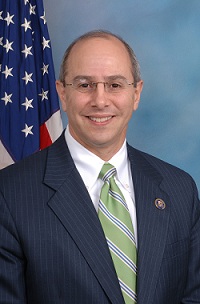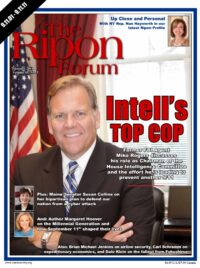
In the midst of the debate on controlling spending, Congress continues its fight against President Obama’s expensive health-care law. Since January, the House has voted to repeal and defund ObamaCare, but the Senate has not acted.
To repeal and replace Obamacare with real solutions, we must do a better job educating Americans on specific ways the law will harm their families. The health law places expensive new mandates on individuals and job creators and creates a new bureaucracy to ration care. As a former heart surgeon, I’m fighting to repeal these provisions immediately. Otherwise, they’ll increase costs, destroy jobs and delay patients’ access to life-saving care.
President Obama’s individual mandate will increase health costs by forcing Americans to purchase expensive Washington-approved coverage for services they may not want or need. Our Founders never intended to empower Congress to regulate economic inactivity under the Commerce Clause. Instead of protecting individual freedom, Washington Democrats opted for a heavy-handed approach, arguing Congress can do anything it wants.
President Obama’s individual mandate will increase health costs by forcing Americans to purchase expensive Washington-approved coverage for services they may not want or need.
Small businesses across America joined a lawsuit with 26 states to prevent this overreach. Despite a recent 2 to 1 decision by the 6th Circuit Court of Appeals to uphold the law, the battle continues before other courts and will ultimately reach the U.S. Supreme Court.
As this case makes progress through the courts, I am working closely with my colleagues to undo the damage of the law through legislation. In addition to enacting unconstitutional mandates on individuals, ObamaCare also punishes job creators around the country if they do not sign up for government-sanctioned health care.
To combat this, I recently introduced H.R. 1744, the American Job Protection Act, to eliminate the damaging employer-mandate provision in ObamaCare. The bill removes requirements stating employers with 50 or more full time “equivalent” employees may be assessed a “free rider” penalty.
At a time when businesses large and small are struggling to survive in a weakened economy, this added burden is completely misguided and unacceptable. The Congressional Budget Office warns of job loss in the next 10 years because of this provision. We must repeal it now to permit businesses across the country to focus on growing their companies, hiring workers and doing their part to improve the economy.
I also joined my colleagues in a fight to stop ObamaCare’s new rationing panel, the Independent Payment Advisory Board (IPAB). During my career as a heart surgeon, I often treated patients who had difficulty finding a primary care doctor because they were on Medicare. The new health law exacerbates this problem.
ObamaCare creates more life-threatening delays for seniors under the President’s IPAB. This 15-member panel of presidential appointees will make new cuts to meet annual spending targets. IPAB will have unprecedented control over patients’ personal medical decisions but limited medical expertise. The law limits the membership of doctors with real experience caring for patients, instead selecting number crunchers focused only on costs. Experts in “technology assessment” will help devise payment formulas that prevent new life-saving medical breakthroughs.
At a time when businesses large and small are struggling to survive in a weakened economy, this added burden is completely misguided and unacceptable.
Secretary Sebelius insists IPAB may not “ration” care, but she admits the new law fails to define the word. By slashing payments below costs, IPAB will deprive patients of needed care. While IPAB can’t outlaw needed treatments, it can force frail patients to wait longer or travel farther. It can also penalize doctors who offer a new and more effective treatment
We cannot serve patients’ best interests by allowing unelected bureaucrats to make critical medical decisions. Even Democrats who voted for Obamacare support repealing IPAB before it begins.
ObamaCare’s policies hurt the people they claim to protect. Rather than creating thousands of new jobs as was promised, America’s unemployment has remained stagnant at 9 percent for months. This law is not the answer to our nation’s health care needs.
Now is the time to act and repeal it and replace it with commonsense solutions to lower costs and protect the doctor-patient relationship.
Charles Boustany represents the 7th District of Louisiana in the U.S. House of Representatives. A cardiovascular surgeon for over 20 years, Dr. Boustany serves as Chairman of the Ways and Means Oversight Subcommittee and is a member of the GOP Doctor’s Caucus.




